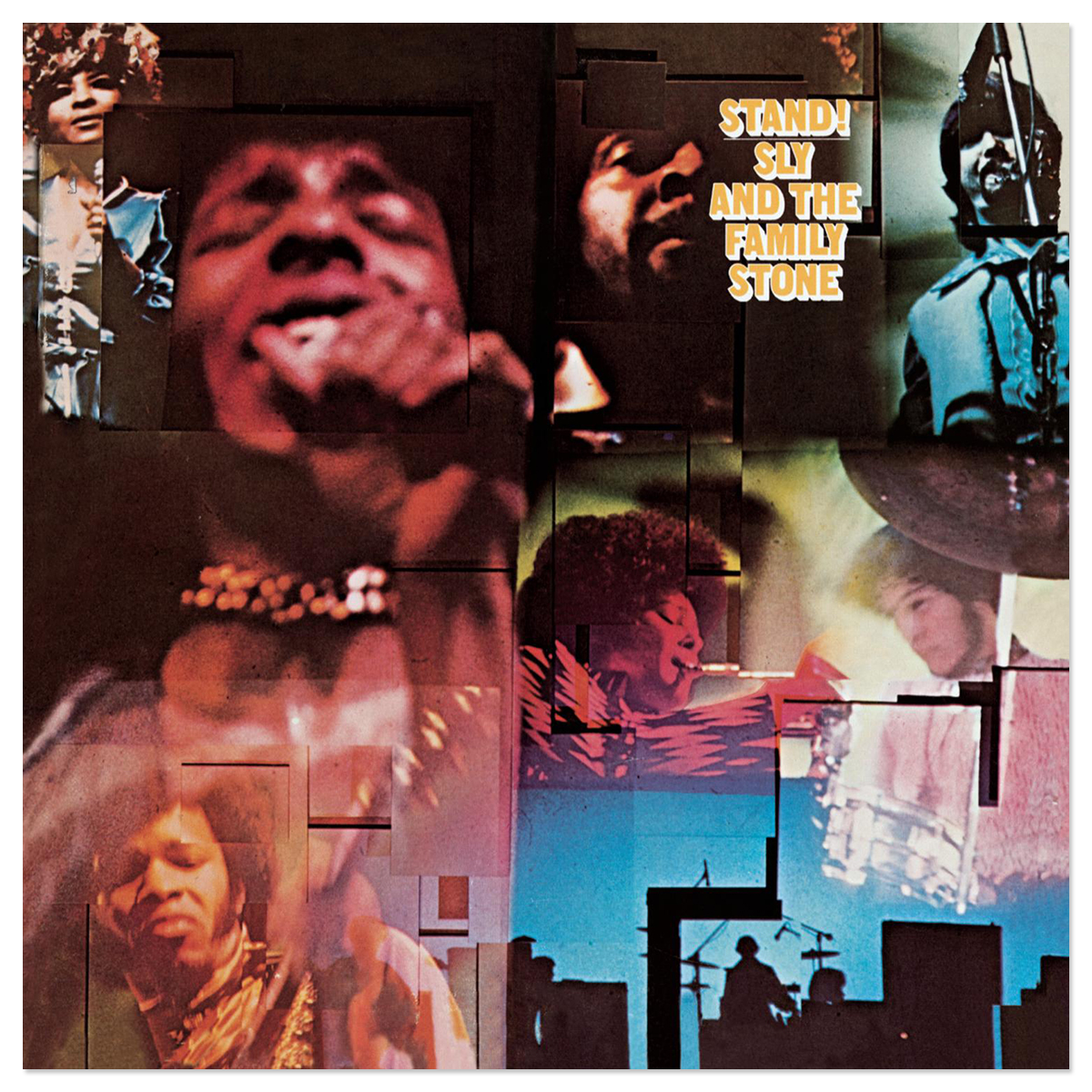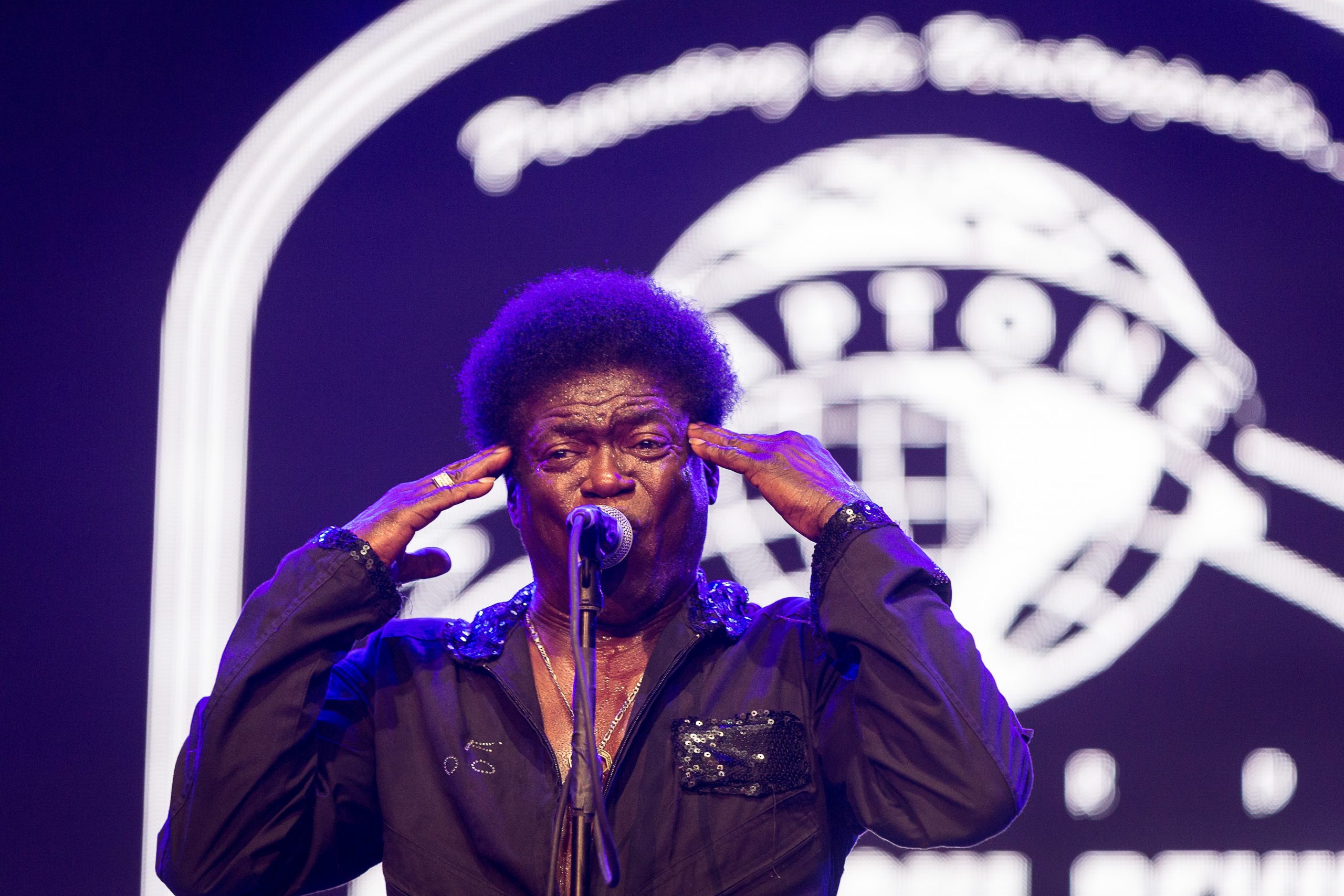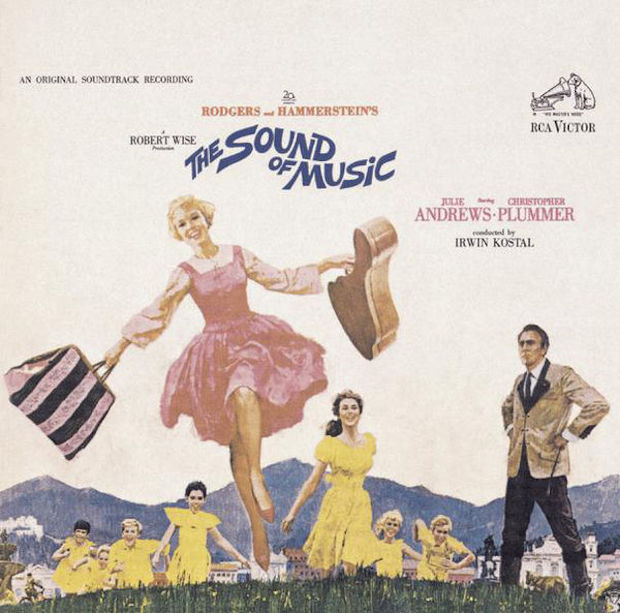Thirty years ago, on March 1, 1988, Ciccone Youth's The Whitey Album was supposed to come out. It didn't, of course -- not until the following year, after all the dust had settled from the career-defining impact that Sonic Youth made with Daydream Nation.
By then, a goof started out as a dickaround idea during the EVOL sessions and supposedly finalized with a 1986 split 7" with Mike Watt had spiralled into something sloppier and weirder, featuring not just the single's versions of "Burnin' Up" and "Into the Groove," but another chart-pop deconstruction in "Addicted To Love," which earned a zero-budget video and a declaration from Spin that it sounded like "sexuality turned into a supermarket product." That's been the rockist case towards the genuine article, anyways, if you feel like calling Madonna a genuine article -- and for a pop artist who doubled as a pop singer, she spent a significant portion of her career shamelessly toying with what "genuine" meant, if anything.
But the funny thing about music that gets derided as mass-marketed fabrications is that even the most omnipresent pop can find the right people at the right time and reveal deeper things about music and the people who make it, no matter how many layers of stardom separate creator and listener. Mike Watt, who motoriked his way gloriously through "Burnin' Up," put it strikingly in the 1993 reissue's liner notes: "They were recording EVOL for SST Records and made me play bass on it. The first bass I played since D. Boon getting killed. They were great people, Lee and Steve, too. One night after recording, me and Thurston got to talking ... and I said: "hell, I want to laugh again" and Thurst said "let's do it like a band and make a record!" ... what I had done was taken my background in Blue Oyster Cult and married (well, to my sensibilities) to the only voice of the 80's that could challenge the Animal House/White House hip smugness of them days. Like Humphrey Bogart or something, I couldn't really understand it but I did know that I was alive and feeling like it... I put a picture of Madonna on my bass because I thought it looked much better there than in an issue of Spin or Rolling Stone. Punk went good with Madonna. I wanted to make her look special and important, someone or something you had to deal with and maybe decide who you are. You know, return the favor."
And a lot of artists, both inside and outside of the pop world, saw Madonna as that someone to deal with -- as a puzzle to be solved, or an adversary to be mocked, or an icon to be lauded. This resulted in everything from sophomoric jokes to moments of bewildering transcendence, and here are eight of the most notable ones to come in Ciccone Youth's wake.
Satan On Fire, "Justify My Love" (ca. 1991)
At the turn of the decade that would see him as pop-culture public enemy #1 by its end, Marilyn Manson and his bandmate Twiggy Ramirez had a side project. And get this: The side project in question, a fake death metal band called Satan On Fire, was concocted primarily for the purpose of tricking a Christian nightclub into booking them. Somehow, this effort failed to get them a gig. There are apocryphal mentions of their song "Mosh For Jesus" making airplay on a Florida Christian rock radio station, but that seems to be as far as the con went. (As to whether they pioneered the idea of calling yourself "Christian Death Metal" a dozen-plus years before it became an omnipresent joke-genre on MySpace, we could at least afford them a point there.) As to how far they might have been willing to take this joke, the answer seems to be "not very, and loosely at that" -- there's nothing either Christian or metal about their cover of Madonna's notorious Lenny Kravitz/Ingrid Chavez-cowritten "Justify My Love." Even broaching the song at all still felt like a controversial move in '91; the sexually provocative, BDSM-tinged Fellini-meets-Mapplethorpe music video was banned by MTV and subsequently became the first single ever released as a music video VHS tape. Manson's attempt to up the ante with his version? Changing the lyrics to junior-high-caliber dick jokes, mostly ("I want you to lick my balls/ In Paris, Niagara Falls") and hissing them through what sounds like a GI Joe walkie-talkie over an apathetic-sounding drum-machine approximation of the original version's proto-trip-hop. But considering the development of Manson's own grotesque-glamor persona and style, it's at least worth wondering if he took anything more profound from Madonna than this. Aside from giving another bandmate an alias that combined her name with John Wayne Gacy's, anyways.
Teenage Fanclub, "Like A Virgin" (1991)
https://youtube.com/watch?v=mjdXGNjB3vc
Writing about Teenage Fanclub without mentioning Bandwagonesque beating R.E.M.'s Out Of Time and Nirvana's Nevermind for Spin's 1991 Album Of The Year is like writing an article in defense of millennials without an avocado toast joke. But there's no more convenient shorthand to point out the initial promise and subsequent critical radar disappearance of the Glasgow power-poppers. For a band that flipped all the cherished Big Star/Byrds switches and kept cutting solid albums long after most of the other Great Rock Hopes of Britpop burned out, they fell into the paradox of being a '90s band omitted from the Hey-Remember-The roll call because they had the bad luck to continue being good past the '90s. So it says something that their overall least-acclaimed album, 1991's The King -- which dropped just three months before Bandwagonesque, and was subsequently deleted from the Creation Records catalogue the same day it was released-- is the closest they've come to a flop, and mostly owing more to circumstance than quality -- a covers-and-instrumentals-heavy fuckaround record would probably be a lot more excusable if it stuck to its original thousand-copy budget-price run instead of hitting a wider market at full price. Anyways, there are some gems in the uncharacteristically grungy record, including this knockout of "Like A Virgin" that makes both the "power" and the "pop" sides of the equation sound colossal without trivializing either themselves or the artist they're covering.
Drop Nineteens, "Angel" (1992)
Speaking of shoegaze-adjacent '90s bands that covered '84 Madonna, here's Boston's Drop Nineteens stretching "Angel" out into a hazy whir of nerves. It feels like there's not much else to say about this version or the band playing it, honestly -- this version of the Drop Nineteens dissolved due to the ever-treacherous "artistic differences" after their debut Delaware, and the second incarnation shook apart for much the same reasons, despite being big enough in the UK to play the Reading Festival and cut a Peel Session. Maybe it was shoegaze market saturation or an imbalance of their popularity at home and abroad, or maybe they were just tired of trying to find new ideas that would keep the My Bloody Valentine comparisons at bay -- either way, they're a coulda-been. And while it's not always the surest sign of a band's strengths and weaknesses to use a cover version as a litmus test, this incongruously energetic-yet-flat take on "Angel" points to where the cracks might've shown in the band's sound. It's a dicey prospect replacing the carefree highs of Madonna's version with a more ambivalent but noisier whirlwind of directionless intensity. At its best, it feels like love of another kind, where being up in a cloud gets you wondering just what this cloud is made of and whether it's safe to breathe. But there's a lot of churn to get through before a blistering guitar coda starts to really unfurl in the song's third minute (of nearly five and a half). Singers Greg Ackell (sonorously flat) and Paula Kelley (sharp but restrained) somehow wind up cancelling each other out, and if their sadness disappears, it sounds like it's replaced with a more indistinct form of ennui.
Sigue Sigue Sputnik, "Ray Of Light" (2000)
The "Love Missile F1-11" weirdos were a big ticket in 1986, and yet they released as many albums in their aborted early-aughts reunion phase (three) as they did in their late '80s flash of notoriety. Were these albums any good? I don't know, but let's take a guess from the aesthetics implied by a few of the song titles. From 2001's Piratespace: "Alien@tion : Inside Bubble"; "Cyberthief : VirusRus"; "Alien Christ: StaynPray." From the following year's tribute(?) Blak Elvis Vs. The Kings Of Electronic Rock And Roll: "Always On My Mindwarp"; "Mystery Trainz"; "Hound Dogg." And from 2003's Ultra Real, which included this (NSF???) image in its CD booklet: "Mickey Mouse Is Going To Hell..."; "Violence Is Fun(ky)"; "Suicide Ssshow." Am I being lazy and/or stalling? Yeah. But that's how drained I feel after listening to this cover of "Ray Of Light" -- released on 2000's Virgin Voices: A Tribute To Madonna - Volume Two and then somehow reissued as an MP3 single seven years later -- that completely squanders all the original's club-pop nuance and buildup-breakdown euphoria. In its place: a piece of music a budget Playstation 2 game would use if the developer yelled at a music-school student with an out-of-date version of Fruity Loops to "get me some of those electronica sounds, like one of those Chemistry Brothers things" and the student knocked this out in an afternoon. If we're living in the stupidest possible cyberpunk world thinkable right now, I'm surprised this hasn't reemerged as its soundtrack.
The Dynamics, "Music" (2007)
https://youtube.com/watch?v=umqjiptqK9o
The Dynamics feel like one of those acts that you tend to get into because of their cover versions, even if calling them a "cover band" is a bit of a gloss on a solidly eclectic bunch of French-based international dub/funk fusionists who've done miraculous things with other artists' work. You might know them from their superlative "Seven Nation Army," which, in keeping with their overall style, capitalized on That Bassline to build the White Stripes/sports-arena/Jeremy Corbyn anthem into something King Tubby could've remixed into a selector's dream. And their '07 debut full-length Version Excursions is absolutely nuts -- they wrangle takes on Prince's "Girls And Boys," Bob Dylan's "Lay Lady Lay," and Pharoah Sanders' "The Creator Has A Master Plan" into the shape of some long-lost Jackpot 7-inches. Their "Music" was released a few months beforehand on 45, but sadly didn't make it to the full-length for whatever reason past the promo -- a damn shame, because it's a clavinet-heavy, sweetly-sung disco-reggae jam that the likes of Risco Connection would envy.
Ariel Pink, "Everybody" (2007)
A ton of off-the-beaten-path Angeleno names show up on the Madonna tribute album Through the Wilderness, but one of them jumps right out of the tracklisting: Ariel Pink, the contentious genius/weirdo/creep (pick at least two) who's done as much as anyone to make lo-fi indie rock and '70s AM pop queasily shake hands. And it's not just because he's the most well-known (or at least most notorious) name: a few years back, he stepped in it when he simultaneously confirmed that he was supposedly working on a new Madonna album and talk shit about pretty much everything she did after her debut album. ("[The] first record was so good because of the songs. It's been a downward slide [since] ... 'Ray of Light' is not cool. And all the other stuff she's done after that, it's not like it matters. It really shows a drain of values. People need more substance in their mac-and-cheese.") Which, yeesh. Unsurprisingly after that, the only Ariel to show up in the final credits of Rebel Heart was Rechtshaid, which leaves us with a big what-if that can only vaguely be hinted at by what Pink did to "Everybody" when he was still pre-4AD and wringing every last ounce from his back catalogue of home tapes. It's definitely a total Ciccone Youth move -- boombox fidelity, deliberately untrained lead vocal, tinny synthesizers and all -- but it's got an additional layer of greasy cellophane around it that makes it feel just a bit more unnerving.
The Flaming Lips With Stardeath & White Dwarfs, "Borderline" (2009)
The Lips' relationship with big-time pop, especially over the last 10 years, has seemed bewildering and often star-crossed -- from their batshit Miley Cyrus collaborations to a cancelled album with Ke$ha (that, in retrospect, seems like an early public harbinger of the whole Dr. Luke nightmare she went through). But when they put it through their filter of stargazing psychedelic surrealist sincerity, damn, it can really hit hard in its own way -- even if they wind up rendering the source material into shimmering gauze in the process. "Borderline" might be the absolute peak of Madonna's early singles, deceptively upbeat until you focus on the unfulfilled, frustrated desire in her performance -- a push-and-pull that gets at both the Here's How Happy I'd Feel If I Got This and Why It Feels So Bad That I Don't sides of the whole pop-song narrative of mercurial love. So what other meaning could Flaming Lips pull from it? In tandem with Stardeath And White Dwarfs, the alt-psych regular collaborators fronted by Wayne Coyne's nephew Dennis, they swing to the other side of the spectrum: Reggie Lucas and "Jellybean" Benitez's post-disco pop has its unmistakable melody spread across a gleaming starfield of minimalist drum machines and synthesizers, until a song about the joy of love undercut by its aggravations becomes a song about the aggravations subtly laced with the joy of love. Subtle until the whole band comes in, anyways, at which point both emotions clash in the middle of a gigantic crystalline cathedral. Fun fact: this closed out a Warner Brothers covers album that also included the Used attempting Talking Heads' "Burning Down The House," Disturbed kludging through Faith No More's "Midlife Crisis," and a goddamned Adam Sandler version of motherfucking Neil Young's "Like A Hurricane" -- plus Avenged Sevenfold doing Sabbath's "Paranoid" as the penultimate track. Imagine how stunning this sounds after all that shit. (Though at least opening the album with Mastodon doing ZZ Top makes for a good "save the bookends, ditch the books" situation.)
A Pregnant Light, "Live to Tell" (2013)
Listen, I can understand if the idea of a metal band doing a Madonna cover seems ridiculous to you, especially if you recognize the most famous instance of such a thing being Exhumed's choking-on-irony karaoke goof on "Material Girl." But have you ever read the lyrics of "Live to Tell"? A man can tell a thousand lies/ I've learned my lesson well/ Hope I live to tell/ The secret I have learned, till then/ It will burn inside of me -- I mean come on, the opportunity there! Grand Rapids one-man wrecking crew A Pregnant Light, the pseudonym-of-a-pseudonym held by cassette-label owner Deathless Maranatha, jumped on that opportunity spectacularly for Live To Tell's epic title track, bringing in Menstrual Tramps/Hammers Of Misfortune/Vhol's Sigrid Sheie and Amber Asylum's Kris Force in to add subtly operatic vocal harmonies and a church-of-the-lost organ treatment to the already introspective Madonna ballad. And what they come out with is an old-school '70s-style stoner rock jam -- turns out adding some blood red to True Blue leaves you with a deep purple.






